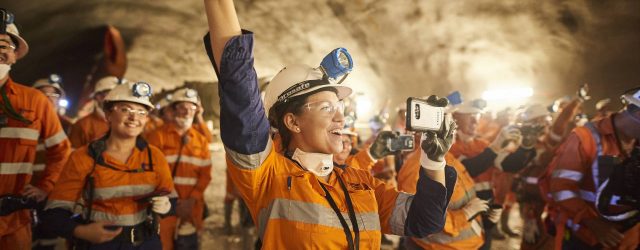Budget secretly housing an opportunity
Posted: 9th May 2024
Posted in: ACA News

Posted: 9th May 2024
Posted in: ACA News
Housing is one of the most pressing challenges facing the nation and all eyes are on the anticipated packages in the Federal Budget aimed at alleviating the housing crisis. Preannounced efforts to tackle labour shortages stemming from apprentices leaving the construction industry prematurely and regulatory barriers impeding access to skilled international tradespeople are useful, but they alone will not address the broader labour shortages impacting the construction industry’s ability to build new homes and other infrastructure.
Australian Constructors Association CEO Jon Davies says there are many factors that discourage people from joining construction in the first place and simply treating the symptoms with short-term measures to plug the skills gap will not suffice.
“Long-term solutions are needed, and the government’s Future Made policy presents a chance to make significant productivity gains through Modern methods of construction,” said Mr Davies.
“Modern methods of construction (MMC) could revolutionise how projects are built, shifting more work to factories. This form of construction is far more productive as it is standardised, takes place in controlled environments and is not subject to site-based risks such as inclement weather. It creates more opportunities for skilled workers in safer environments with increased opportunities for flexible work hours.”
MMC aligns seamlessly with Australia’s ambitions for net-zero emissions. By reducing waste and minimising reliance on fossil fuels, MMC presents a pathway toward decarbonising the construction industry and meeting global emission targets.
“The problem is, MMC isn’t widely used due to the significant investment required but government support could change that,” argues Mr Davies.
“By optimising project designs for manufacture and assembly and by standardising components of schools, hospitals, metro stations, bridges and other types of infrastructure across jurisdictions, a viable market will be created to support private sector investment in MMC manufacturing facilities. This investment could be accelerated by matched investment from State and Federal governments and by underwriting demand in the short term.
“Given the scale of operations required to maximise efficiency, MMC manufacturing facilities would ideally be located in regional areas between major population centres thus providing secure skilled employment opportunities in areas that need them the most.”
The potential economic returns are substantial. Closing the productivity gap between construction and other industries could boost the economy by $56 billion annually. This could fund essential services like the NDIS and build new schools and hospitals nationwide.
“Investing in MMC might not be as glamorous as other industries, but it’s vital. It could transform the sector, making it more diverse, sustainable and efficient. This would ensure the country gets the infrastructure it needs, when it needs it, and at an affordable cost.”